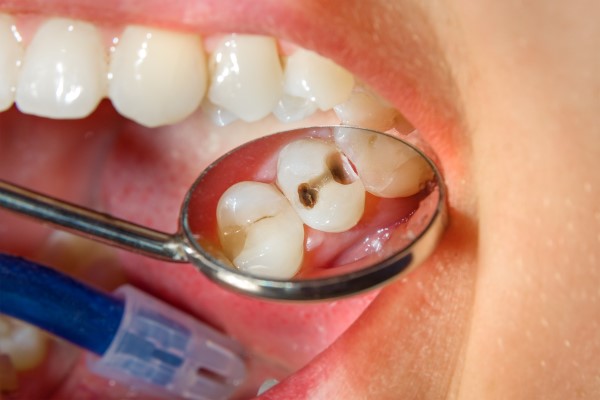Smoking After Wisdom Tooth Extraction: A Comprehensive Guide
Wisdom teeth removal, also known as third molar extraction, is a common oral surgery procedure performed by dentists or oral surgeons. While the procedure itself is generally safe, proper post-operative care is crucial for a smooth recovery and minimal complications. One of the most important aspects of aftercare is avoiding smoking. This article will delve into the details of why smoking is detrimental after wisdom tooth extraction, the recommended waiting period, and alternative coping mechanisms for smokers.
Why Smoking After Wisdom Tooth Extraction is a Bad Idea
Smoking poses several significant risks after wisdom tooth extraction. Here’s a breakdown of the complications it can cause:
- Disrupted Blood Clot Formation: Following tooth extraction, a blood clot forms in the socket where the tooth was removed. This clot plays a vital role in initiating the healing process. Smoking disrupts this delicate process by:
- Reduced Blood Flow: The suction action of smoking restricts blood flow to the extraction site, hindering the formation of a healthy blood clot.
- Delayed Healing: The chemicals in cigarettes, like nicotine and tar, interfere with the body’s natural healing mechanisms, further delaying clot formation and prolonging recovery time.
- Increased Risk of Dry Socket: Dry socket is a painful condition that occurs when the blood clot dislodges or fails to form entirely, exposing the underlying bone and nerves. Smoking is a major risk factor for developing dry socket. The symptoms of dry socket include:
- Throbbing pain in the extraction site
- Bad breath (halitosis)
- Exposed bone visible in the socket
- Unpleasant taste in the mouth
- Increased Risk of Infection: Smoking weakens the immune system’s ability to fight off bacteria. This can lead to a higher risk of developing an infection at the extraction site, which can be quite serious and require additional treatment with antibiotics.
- Impaired Tissue Regeneration: The harsh chemicals in cigarettes hinder the growth of new healthy tissue at the extraction site, potentially leading to delayed wound closure and prolonged healing.
How Long Should You Wait Before Smoking After Wisdom Tooth Extraction?
While there’s no universally agreed-upon waiting period, most dentists and oral surgeons recommend abstaining from smoking for at least 72 hours (3 days) after wisdom tooth extraction. This timeframe allows for a sufficient clot to form and initiate the healing process. Ideally, it’s best to avoid smoking for as long as possible after surgery.
Here’s a breakdown of the risks associated with different waiting periods:
- Less than 24 hours: This is the highest risk period. Smoking during this time significantly increases the chances of developing a dry socket and other complications.
- 24-72 hours: The risk of complications is still high, but it starts to decrease as the clot begins to form.
- Over 72 hours: The risk of complications progressively reduces as healing progresses.
Remember: It’s always best to follow your dentist’s specific instructions regarding smoking after wisdom tooth extraction. They will consider your individual case and overall health when providing guidance.
Tips for Coping with Smoking Cessation After Wisdom Tooth Extraction
Quitting smoking, even temporarily, can be challenging. Here are some tips to help you manage the urge to smoke after wisdom tooth extraction:
- Nicotine Replacement Therapy (NRT): Discuss NRT options with your dentist or doctor. These products, such as patches, gum, or lozenges, can help manage cravings and withdrawal symptoms.
- Distraction: Keep yourself occupied with activities that take your mind off smoking. Read a book, watch a movie, listen to music, or spend time with loved ones.
- Oral Alternatives: Consider sugar-free candy, mints, or chewing gum (avoid hard candy or gum that requires vigorous chewing). These can help manage cravings and keep your mouth moist.
- Focus on the Benefits: Remind yourself of the reasons for quitting smoking, even if it’s temporary. Not only are you promoting a quicker recovery from surgery, but you’re also taking a step towards better overall health.
Understanding the Healing Process After Wisdom Tooth Extraction
Knowing the different stages of healing can help manage expectations and provide context for avoiding smoking. Here’s a brief overview:
- Days 1-3: This is the most critical period for clot formation. Pain, swelling, and bleeding are common. It’s crucial to avoid smoking and any activity that could dislodge the clot.
- Days 4-7: Swelling and discomfort typically begin to subside. Gentle rinsing with salt water can be introduced to promote healing and prevent infection.
- Weeks 1-2: The socket gradually fills with new tissue.
- Weeks 3-4: Most of the discomfort should be gone, and the healing process is nearing completion.




